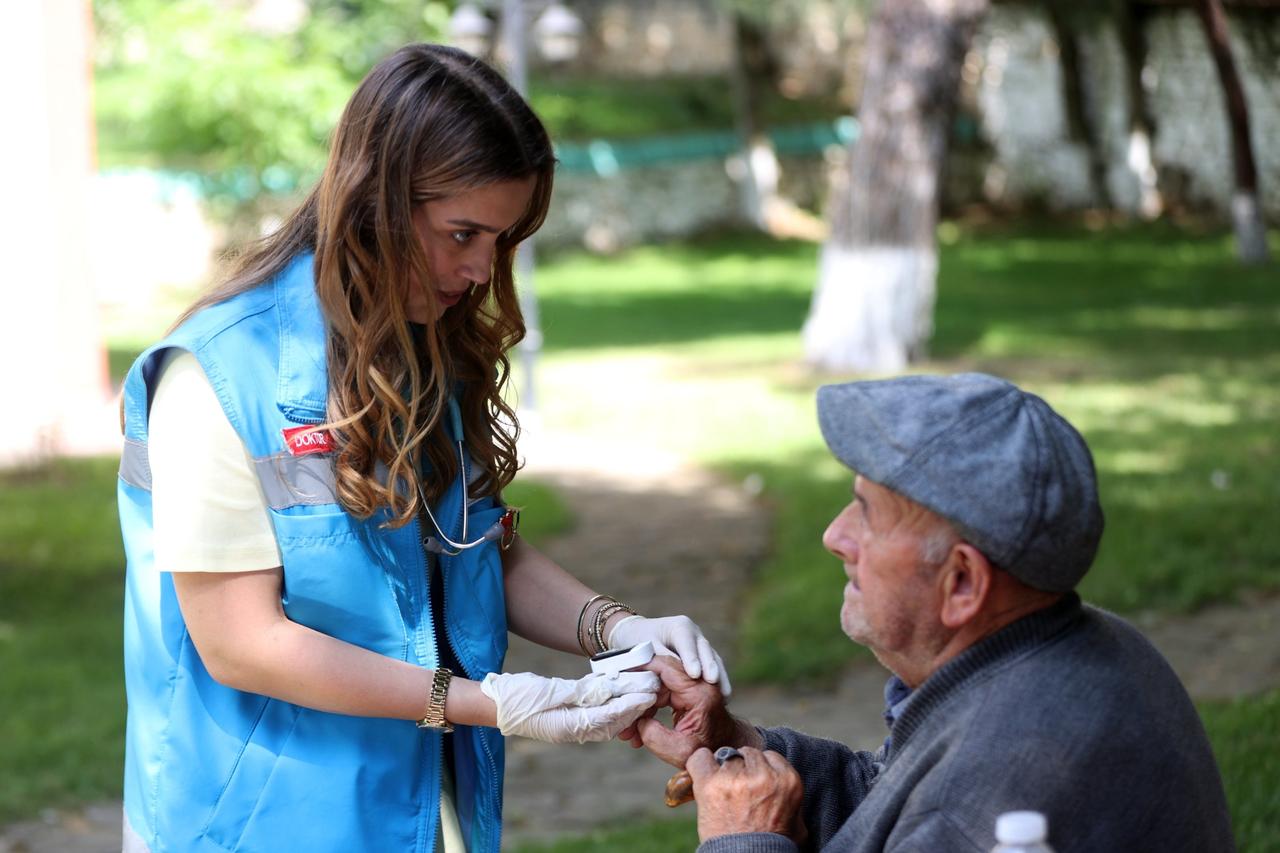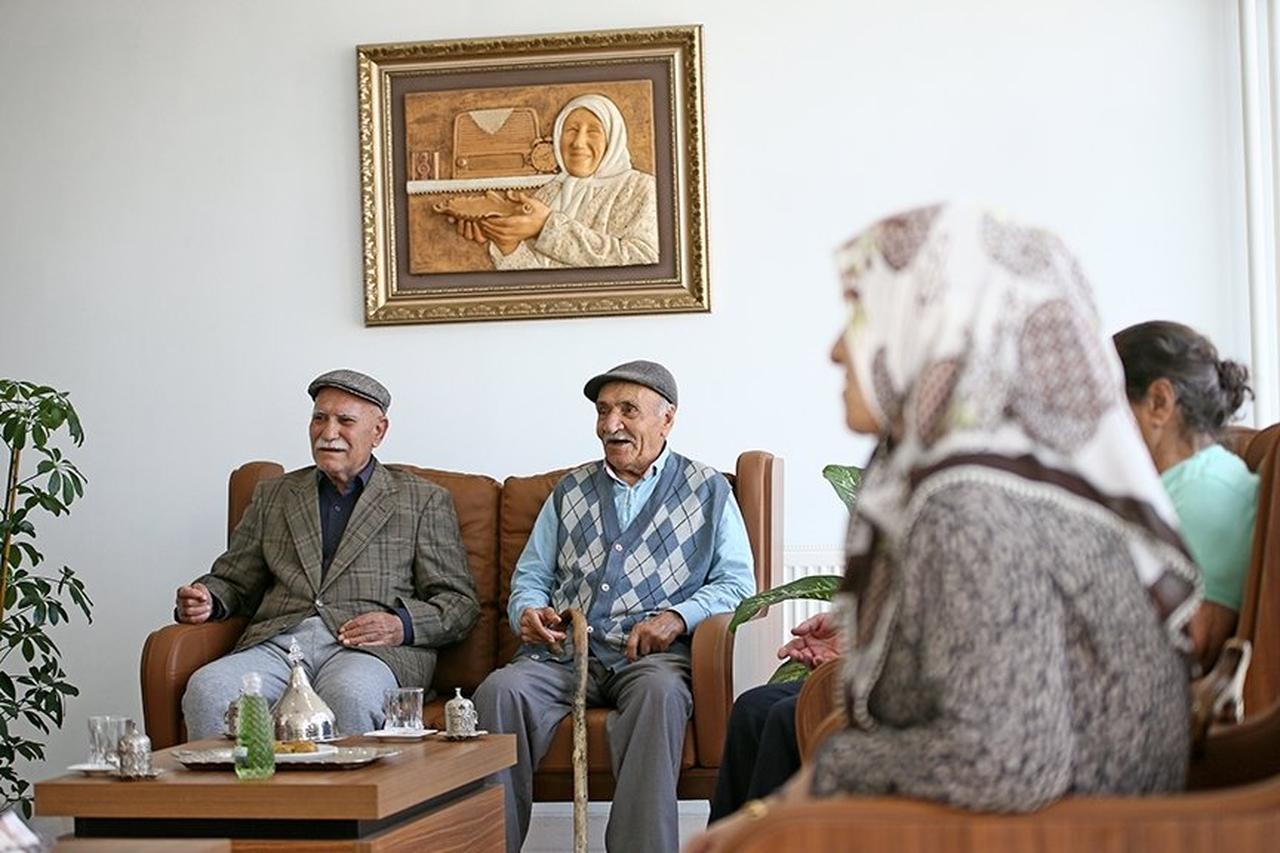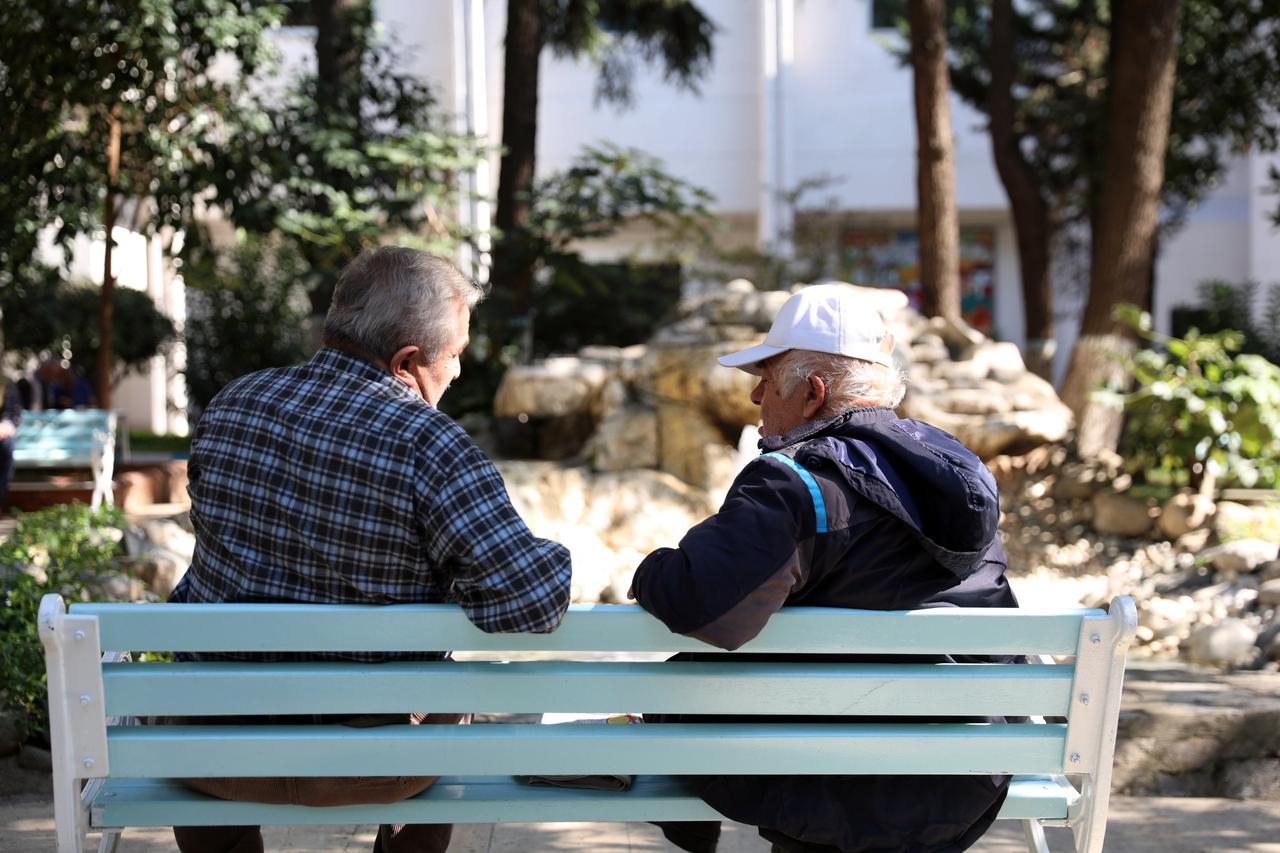
As Türkiye’s population ages at record speed, the country’s elderly care industry is preparing to at least double in size over the next two decades, with experts warning that capacity, regulation and workforce training will have to catch up. They point to the rise of a global “silver economy” – the segment of the economy linked to people over 65 – which is expected to reach $8.5 trillion worldwide by 2032, and say elderly care is emerging as one of the key investment areas of the future.
According to the Turkish Statistical Institute (TurkStat), the number of people aged 65 and over in Türkiye has already passed 9 million, giving older people a share of around 11% in the total population. Over the last five years, this age group has grown by more than one-fifth, signalling that the country is moving rapidly towards an ageing demographic structure.
Demographers note that the old-age dependency ratio – the number of older people per 100 people of working age – rose from 13.4% in 2019 to 15.5% in 2024. Under the main projection, this ratio is expected to approach 20% by 2030, rise to more than one quarter by 2040 and climb above 60% by the end of the century if current trends continue.
Gaye Oz Esmeray, chair of Gaya Care Units, draws attention to this shift and projects that the share of people aged 65 and over will exceed 16% by 2040. She argues that this will push demand for elderly care services to at least twice today’s level, and says the sector is already under pressure because demand is running ahead of supply.

Culturally, many families in Türkiye still prefer to care for older relatives at home. However, changing lifestyles, longer life expectancy and the spread of the nuclear family are gradually pushing the system towards institutional care. Esmeray notes that strong traditions of home-based care remain the biggest hesitation when families think about moving relatives into formal facilities, but she says this perception is slowly shifting.
Families are increasingly looking for professional support in cases that require intensive care, continuous medical monitoring or higher security standards. Esmeray expects the transition to institutional care to become less challenging over time and to move closer to European patterns.
Referring to 2024 figures, she states that the total number of nursing homes in Türkiye has surpassed 450, serving around 30,000 older people. She adds that “market saturation is not expected in the short term because demand is above supply,” and stresses that there is still significant room for growth.
Deniz Vusale Barokas, founder of Liman Elderly Care Center, also underlines how quickly Türkiye’s population is ageing and calls attention to shortcomings in the legal and institutional framework. She notes that there are about 500 elderly care institutions in the country, but says this capacity is low when compared with forecasts that almost 18% of the population could be classified as elderly by 2040.
Barokas argues that existing regulations do not fully match the rising need, especially in terms of capacity planning, inspection, staffing standards and integration with the health system. She believes that criteria for opening new facilities should be rewritten in clearer, more measurable terms and aligned with regional needs, and that minimum levels of healthcare personnel and quality standards should become a firm requirement rather than a target.
Sector representatives see the shortage of qualified staff as the main risk that could hold back growth. Esmeray notes that even today, the number of caregivers per 100 older people in Türkiye remains below the average of the Organisation for Economic Co-operation and Development (OECD). She warns that a further decline in the share of young people will deepen this gap if no action is taken.
As a response, she calls for university programmes in gerontology – the study of ageing – and elderly care to be strengthened quickly, and for working conditions and rights in the sector to improve so that the profession becomes more attractive. She also highlights the need to bring elderly care into the core curriculum of vocational schools and to expand certification schemes.
Barokas, speaking from her experience as a doctor, says that finding young people willing to work in roles that involve “self-care” and personal support is particularly difficult, which leads to high staff turnover. On the ground, she most often encounters problems linked to personnel shortages, inadequate equipment, limited access to health services and the rising number of older people who require heavy and continuous care.
She believes that, beyond state-backed training programmes, new legal incentives are needed. Her proposals include education scholarships, tax breaks or social insurance advantages for young people who choose care work, and direct financial support for institutions that hire and retain staff.
TurkStat’s 2024 household data show how deeply ageing now shapes everyday life. Out of roughly 26.6 million households in Türkiye, about 6.7 million – more than one in four – include at least one person aged 65 or older.
Of these, almost 1.8 million households consist of an older person living alone. Around three quarters of single-person elderly households are women, while men account for about one quarter. These figures underline the importance of services that can support people who are ageing on their own, especially older women.
On a global scale, United Nations estimates indicate that there are about 833 million people aged 65 and above in a world population of roughly 8.16 billion, meaning seniors account for just over 10% of humanity. The countries with the highest proportions of older people include Monaco, Japan and Italy. In this ranking of 194 countries, Türkiye stands around the middle.
The broader economic potential of ageing is a central theme in policy discussions. At the Global Economy Summit, Treasury and Finance Minister Mehmet Simsek highlighted the opportunities in geriatrics centres, rehabilitation facilities, tele-medicine, wearable monitoring devices, care robots, in-home assistance robots and smart home systems. He sees these fields as key pillars of the silver economy and as areas that could attract investment.
For entrepreneur Ali Kilinc, chair of Omnigen Medical Products, rising care costs and global ageing create space for a new export-oriented service model. He proposes integrated centres that would combine high-quality medical care with social activities and leisure for older visitors from Europe, North America and Canada who can afford premium services.

He suggests building large, modern facilities on spacious plots in clean-air locations such as Urla or the Kazdaglari region, close to hospitals. These centres would offer not only medical supervision but also sports, social programmes and sightseeing in a single package. “Foreign elderly tourists should be able to travel, exercise and protect their health at the same time,” he says, arguing that “for people in the United States or Switzerland who have the means and want good service, Türkiye can be a fantastic hub. This is a beautiful business with a future. But we need land. The state has to support such projects with long-term land leases of 49 or 50 years.”
Kilinc also warns that a shortage of motivated and trained caregivers could become one of the main operational constraints on such a model. In his own field, which covers laboratories and medical products, he expects more frequent tests and higher test volumes as populations age, and therefore anticipates natural growth in demand.
Esmeray, for her part, describes recent state-backed credit schemes for women entrepreneurs in elderly and disability care as “very important,” arguing that they will make it easier to establish modern, accessible care centres that meet international standards and will help strengthen Türkiye’s position in the silver economy.
According to business outlet Patronlar Dunyasi, which reported the views of these sector representatives, the combination of demographic pressure, regulatory reform and targeted incentives is set to shape how fast Türkiye’s elderly care industry can expand in the coming decades.